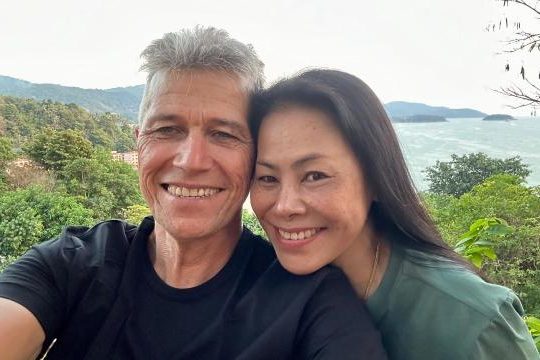THERESE O’Brien had no idea that a trip to see wildlife in Borneo would lead her on a crusade to save endangered orangutans.
The public servant, university student and mother-of-one, had a chance encounter with a wild orangutan when on holiday last year with her partner, and has been hooked to the cause ever since.
Therese is one of the ACT representatives of the Australian Orangutan Project, a non-for-profit organisation that has three aims: conservation, education and protection of orangutans, which are in grave danger of extinction due to deforestation in Sumatra, Indonesia and Borneo. One of the animal’s biggest threats is palm oil plantations.
“I wasn’t fully aware about palm oil…” she said.
“But going to Borneo, when you drive around you just see massive plantations everywhere, trucks going past full of palm oil, the whole economy is based around it.
“It’s not all totally negative, there’s employment opportunities, it has given people livelihoods, that may not have any other opportunities but it’s causing massive extinction across the whole forest.”
Therese says illegal logging and the illegal pet trade is also a big issue facing orangutans in Sumatra and Borneo.
“People will go and kill an orangutan and capture a baby to sell for about $15,” she said.
“They are very similar to humans in that a baby orangutan, when seeing their mother tortured and killed will be quite traumatised.
“Then taken to a strange place out of the forest, living in a box, or chained under a tree, fed rice instead of fruit.
“Their mothers chew up their food for them as well, so they can’t quite digest what they are given, sometimes they are given cigarettes.
“At a quarantine centre in Sumatra earlier this year, some of the babies had their arms amputated because they had been chained up for so long, as they grew, the chains were too tight and basically killed their hands or their foot and they’ve had to be amputated before they get gangrene.”
AOP mostly fundraise in Australia – in the ACT, its recent fundraiser “Jazzin’ for Rangas” raised $8500.
How they spend the funds was based on science and urgency, Therese said. The organisation selected projects in Sumatra and Borneo, sometimes run by other organisations, that it believed would have the most impact. One of these projects included a sustainable palm oil farm in Aceh, Sumatra.
“So instead of chopping down rain forest, they use fallow land, land the community all own it, they’ve got the community together farming it and that will raise income for that community so that they are out killing orangutans,” she said.
Theresa said that although AOP worked on educating communities in Borneo and Sumatra of the importance of the environment and orangutans, the organisation also wanted to educate Australian communities, too.
“My favourite program is called ‘Safe Guard’, $7.50 for one year will protect 10 hectares,” she said.
“What we do is train local people to become rangers. They get a uniform and they get a motor bike or whatever is needed and they drive around patrolling the forest.”
AOP in the ACT hoped to get more involved with local schools, to educate Canberra students about their cause.
Theresa said there were also other ways to get involved, such as joining AOP or adopting a baby orangutan to help fund its rehabilitation at a quarantine centre.
More information at visit www.orangutan.org.au
Who can be trusted?
In a world of spin and confusion, there’s never been a more important time to support independent journalism in Canberra.
If you trust our work online and want to enforce the power of independent voices, I invite you to make a small contribution.
Every dollar of support is invested back into our journalism to help keep citynews.com.au strong and free.
Thank you,
Ian Meikle, editor




Leave a Reply